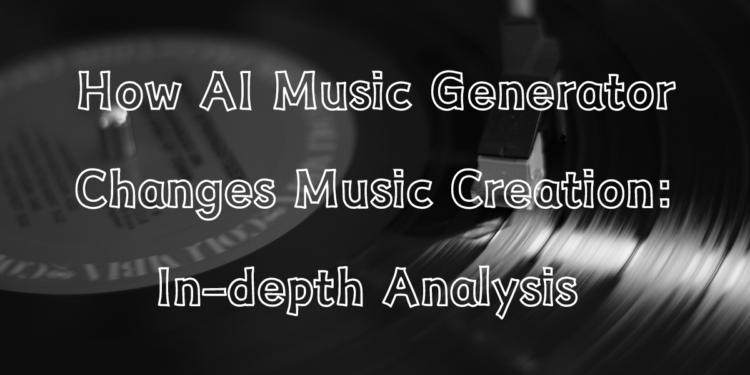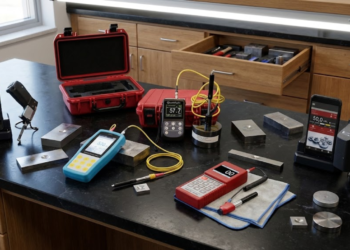Introduction
In the ever-evolving landscape of music, the advent of artificial intelligence has brought a profound shift in how music is created, experienced, and understood. AI music generators, once a concept of science fiction, have become a reality that is reshaping the music industry. These advanced algorithms are capable of composing music autonomously, mimicking human creativity with surprising accuracy. As we delve into this in-depth analysis, we will explore the mechanisms behind AI music generation, its benefits, challenges, and the ethical implications it brings to the table. This article aims to provide a comprehensive understanding of how AI music generators are transforming the world of music.
What is AI Music Generator?
AI music generator is a type of software that uses artificial intelligence to create music. These systems analyze vast datasets of existing music to learn patterns, structures, and styles. By understanding these elements, AI can generate new compositions that are original yet influenced by the music it has learned from. The technology behind AI music generators often involves machine learning, where the AI continuously improves its compositions as it processes more data.
AI music generators have rapidly evolved, moving from simple, repetitive melodies to complex compositions that can evoke emotions and create atmospheres. This evolution has been fueled by advancements in deep learning and neural networks, which enable AI to understand and replicate the intricacies of human musical expression. As these technologies continue to develop, the role of AI in music creation is expected to grow, challenging traditional notions of creativity and authorship in the music industry.
How Does AI Music Generator Work?
Understanding how AI music generator functions requires a look into the sophisticated technologies that power them. These systems are not merely random note generators; they are based on complex algorithms and models that learn from a vast array of musical compositions.
Data Collection and Analysis
At the core of AI music generators is the data they are trained on. These datasets can include thousands of musical pieces across different genres and styles. The AI analyzes these pieces, breaking them down into their fundamental components—melody, harmony, rhythm, and structure. By doing so, it learns the patterns and rules that define different musical styles.
Machine Learning and Model Training
Once the data is collected and analyzed, the next step involves training the AI model. This is where machine learning comes into play. The AI is fed with data and, through various algorithms, learns to identify and replicate the patterns it has observed. The process involves a lot of trial and error, with the AI gradually improving its ability to create music that aligns with human standards of creativity and aesthetic value.
Composition and Generation
After the model is trained, the AI can begin generating music. This involves selecting notes, chords, and rhythms that align with the patterns it has learned. The generated music can range from simple loops to full-fledged compositions, depending on the complexity of the model and the dataset it was trained on. The result is a piece of music that, while created by a machine, can evoke the same emotions and responses as music composed by humans.
Benefits of Using AI Music Generator in Music Creation?
AI music generators offer a myriad of benefits that are gradually being recognized across the music industry. For those exploring the Suno AI alternative, it’s important to understand that these tools, much like other AI music generators, are not just about efficiency but also about innovation.
- Efficiency in Composition: AI can compose music at a speed that far exceeds human capabilities, allowing for rapid production of background scores, jingles, and even full-length songs.
- Accessibility for Non-Musicians: With AI, individuals who lack formal music training can still create professional-sounding music, democratizing the music creation process.
- Experimentation and Innovation: AI offers new tools for musicians to experiment with, pushing the boundaries of traditional music creation and exploring novel sounds and compositions.
- Cost-Effective Production: AI-generated music can reduce costs associated with hiring composers and musicians, particularly for small-scale projects or independent artists.
How Is AI Changing Traditional Music Composition?
The impact of AI on traditional music composition is profound, challenging the very foundations of what it means to create music.
Redefining Creativity
AI is forcing us to reconsider the definition of creativity. Traditionally, music composition has been seen as a deeply human, emotional process. However, AI’s ability to generate emotionally resonant music raises questions about the role of human creativity in the future. Can a machine be truly creative, or is it merely replicating human creativity in a different form?
Collaborative Composition
AI is increasingly being used as a collaborative tool by musicians. Instead of replacing human composers, an AI song generator acts as a co-composer, suggesting melodies, harmonies, and rhythms that artists can then refine and build upon. This collaboration between human and machine opens up new possibilities for musical exploration, blending human intuition with AI’s analytical capabilities.
Disruption of Traditional Methods
The traditional methods of music composition are also being disrupted by AI. The linear, time-consuming process of composing music is being replaced by AI-driven tools that can generate multiple variations of a piece in minutes. This shift is leading to a faster, more dynamic approach to music creation, where ideas can be explored and discarded at a much quicker pace.
Challenges and Limitations of AI Music Generators
While AI music generators offer numerous advantages, they also come with challenges and limitations that must be acknowledged.
- Lack of Emotional Depth: AI-generated music often lacks the emotional depth and nuance that human composers bring to their work. While AI can replicate patterns and structures, it struggles to imbue music with the same level of emotional expression.
- Ethical and Legal Concerns: The use of AI in music creation raises ethical and legal questions, particularly around issues of authorship and copyright. Who owns the rights to a piece of music created by an AI? This is a grey area that the industry is still grappling with.
- Over-reliance on AI: There is a risk that the increasing use of AI in music could lead to an over-reliance on technology, stifling human creativity and leading to a homogenization of music.
- Quality Control: Not all AI-generated music meets the high standards expected by listeners. The quality of AI compositions can vary widely, and human oversight is often needed to ensure that the final product is of acceptable quality.
Ethical Considerations in AI Music Creation
The integration of AI in music creation is not without its ethical dilemmas.
- Authorship and Ownership: One of the most pressing ethical issues is the question of who owns the rights to AI-generated music. Is it the programmer, the user, or the AI itself? This issue complicates the traditional understanding of intellectual property.
- Impact on Employment: As AI becomes more prevalent in music creation, there is concern about its impact on jobs within the industry. Will AI replace human composers, or will it create new roles that require different skills?
- Cultural Implications: AI music generators are trained on existing music, which means they could perpetuate cultural biases present in the data. This raises questions about the role of AI in shaping cultural expression and diversity in music.
- Transparency and Accountability: There is a need for transparency in how AI-generated music is used and credited. Listeners should be informed if a piece of music was created by AI, and there should be clear guidelines on how to attribute authorship.
How Is AI Impacting the Future of the Music Industry?
AI is poised to have a significant impact on the future of the music industry. It is not just altering how music is created but also how it is distributed, consumed, and monetized. AI-driven platforms are already personalizing music recommendations, shaping listener preferences, and even predicting the next big hit. As AI continues to evolve, it will likely lead to new business models, where music creation and consumption are increasingly driven by data and algorithms. However, the human element in music—the emotions, stories, and cultural significance—will remain essential, ensuring that AI enhances rather than replaces the artistic soul of music.
Conclusion
The rise of AI music generators marks a transformative moment in the history of music. While these tools offer unprecedented opportunities for efficiency, creativity, and innovation, they also bring challenges that must be navigated with care. As AI continues to evolve, it is crucial to strike a balance between leveraging its capabilities and preserving the human essence of music creation. The future of music will undoubtedly be shaped by AI, but it will also be defined by how we, as creators and consumers, choose to integrate this technology into our musical landscapes.




![7 Best POS Software in the UK [2026 Edition]](https://todaynews.co.uk/wp-content/uploads/2026/02/7-Best-POS-Software-in-the-UK-2026-Edition-360x180.png)







































































